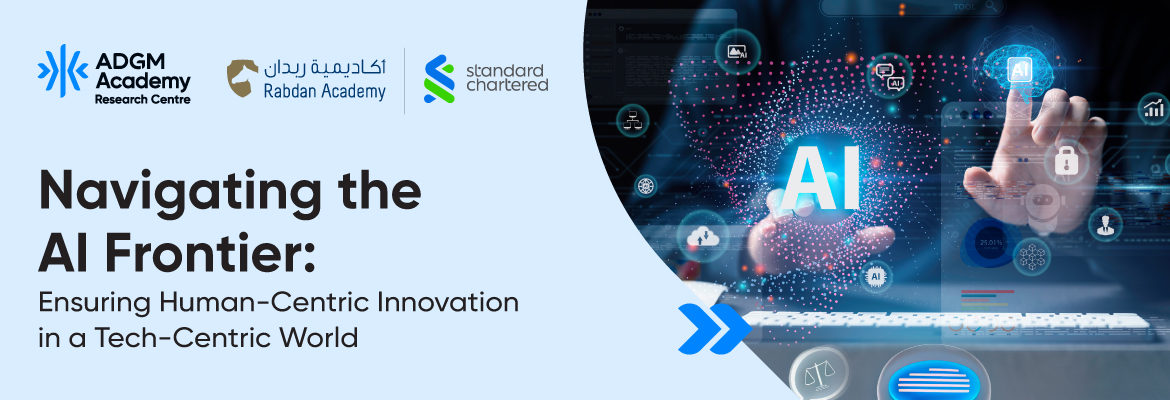Article Series: Navigating the AI Frontier - Ensuring Human-Centric Innovation in a Tech-Centric World

Our latest article examines how organisations can harness artificial intelligence (AI) responsibly while safeguarding human agency, creativity, and critical thinking. Drawing lessons from chess grandmaster Garry Kasparov’s human–machine collaboration, the U.S. military’s “digital centaur” model, and real-world cases of AI failures in law, finance, and cybersecurity, the paper highlights the risks of over-reliance on automation and the importance of transparency, oversight, and collaboration.
Authored by Dr. John George Hatzadony from Rabdan Academy with contributions from senior AI leaders at Standard Chartered Bank, the paper offers practical frameworks and policy-aligned strategies to ensure AI serves as an enabler of human capability rather than a replacement—ultimately reinforcing trust, resilience, and innovation across industries.
Building on these insights, the paper addresses the cognitive and societal implications of AI adoption, including the risks of diminished critical thinking, bias reinforcement, and inequity when humans are removed from the loop. It proposes design principles rooted in transparency, collaboration, and flexibility, aligning them with emerging regulatory frameworks such as the EU AI Act, Singapore’s FEAT principles, and the UAE’s National AI Strategy 2031.
By advocating a human-centric approach, the authors chart a path for governments, businesses, and educators to ensure that AI systems enhance rather than erode human judgment, institutional trust, and long-term societal well-being.
Authors: Dr. John George Hatzadony, Rabdan Academy
Contributions by: Emma Johnson, Azra Razak, and Farooq Husain, Standard Chartered Bank

